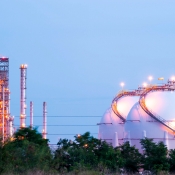Germany's Ambitious 17-Billion-Euro Gas Power Plan Amid Political Uncertainty
Key Ideas
- Germany's Economy Minister is pushing for a 17-billion-euro plan to build gas power plants despite slim parliamentary approval chances.
- The plan aims to stabilize the grid with gas-produced electricity when renewable energy sources are insufficient, while transitioning to green hydrogen.
- Energy companies are pressuring for timely implementation to meet the 2030 coal phase-out goal and ensure a secure power supply.
- There are concerns about the lack of a formal draft of the proposed Power Plant Safety Act, raising doubts among energy experts and operators.
Germany's Economy Minister, Robert Habeck, is spearheading a 17-billion-euro initiative to construct gas power plants as a measure to stabilize the grid when renewable energy sources are inadequate. The plan includes subsidies to support the development of hydrogen-ready gas power plants, retrofitting existing facilities, and constructing fully hydrogen-powered plants. Despite facing slim chances of parliamentary approval amid political uncertainty and a looming snap election in February, Habeck aims to fast-track the legislation. The proposed shift towards green hydrogen production through wind and solar-powered electrolysis is seen as a move towards reducing reliance on fossil fuels. However, critics, including the opposition CDU, have raised concerns about the lack of a formal draft of the Power Plant Safety Act. Energy companies are urging for prompt action to meet the 2030 coal phase-out target, highlighting the necessity of timely construction of gas-fired power plants. The successor government post-election is expected to prioritize this ambitious project to ensure a secure energy supply and align with environmental goals.
Topics
Utilities
Renewable Energy
Infrastructure
Legislation
Energy Policy
Economic Stimulus
Coal Phase-out
Political Uncertainty
Parliamentary Process
Latest News
